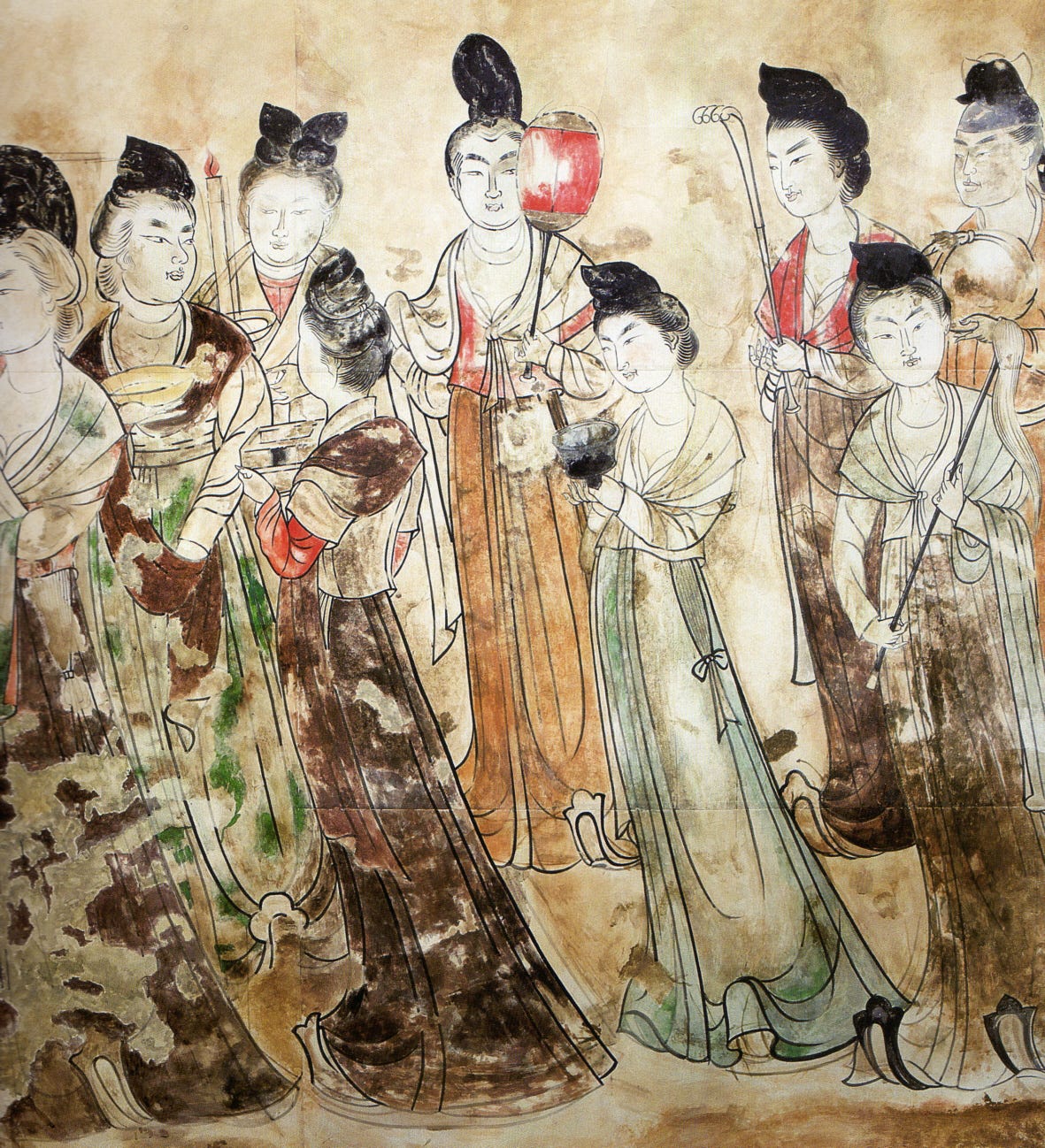

Sung in the Palace Xue Feng The Twelfth Hall, So the Yellow Emperor called it. Anyway, I’ve finished the morning’s chore: Dressing. Now up To the Hall Where One Sees Immortals To look out for my lord Approaching. The rings And the locks and bars upon the doors Are sculpted golden animal forms And very cold. Water pours From a bronze dragon sculpture, Drop by drop to measure The long day. My hair Is combed into a coiffure, But I stay at the mirror, Not moving. Expensive silk. I’d love to change it. I add a little more Deodorant, And distantly Gaze into his Righteous Hall, Where the curtain hangs ajar, Discovering That making Up the bed of the Emperor Is some maid in a shawl And pantaloons. 薛逢 宫词 十二楼中尽晓妆,望仙楼上望君王。 锁衔金兽连环冷,水滴铜龙昼漏长。 云髻罢梳还对镜,罗衣欲换更添香。 遥窥正殿帘开处,袍袴宫人扫御床。
Xue Feng (806-874) was a satirist. By the end of his life, he would get into trouble for his mocking his peers and elders. This poem takes a very careful line, but the suggestive text opens up space for much more nuanced readings than similar poems from earlier in the Tang Dynasty.
One simple reading is that this palace girl earnestly yearns for the emperor to come and visit her. He is the god of her little world, so it’s only right to climb Viewing Immortals Building to look out for him. The world seems slow, and time passes slowly without him. She lingers in front of the mirror and changes her clothes because she wants to look perfect for him. And she gazes at his palace.
But there are a number of clues that this reading is far from all. The line about looking out for the emperor is too cute. The coldness of palace life was a well-established theme. She stays in front of the mirror even though she’s finished combing her hair, and the poem only tells us that she wanted to change her clothes, not that she actually changed them. The last line tells us that he’s close enough to see.
Beyond the simplistic love-the-daddy there’s frustration, boredom, jealousy, snobbery…
The mention of trousers in the last line cast me back to perhaps the most beautiful play I’ve ever seen: Tom Stoppard’s Arcadia.
Septimus: I thought in my madness that the Chater with her skirts over her head would give me the momentary illusion of the happiness to which I dared not put a face.
Lady Croom: I do not know when I have received a more unusual compliment, Mr Hodge. I hope I am more than a match for Mrs Chater with her head in a bucket. Does she wear drawers?
Septimus: She does.
Lady Croom: Yes, I have heard that drawers are being worn now. It is unnatural for women to be got up like jockeys. I cannot approve. (She turns with a whirl of skirts and moves to leave.) I know nothing of Pericles or the Athenian philosophers. I can spare them an hour, in my sitting room when I have bathed. Seven o’clock. Bring a book.



Arcadia is the best! I read it recently with friends (would love to see it staged one day), planning to write something about it in an upcoming substack.
As a kid watching movies, the imperial court looked glamorous…and while it’s definitely an upgrade from the life of the peasant, the idea of being trapped in palace intrigue now is utterly horrific and revolting.